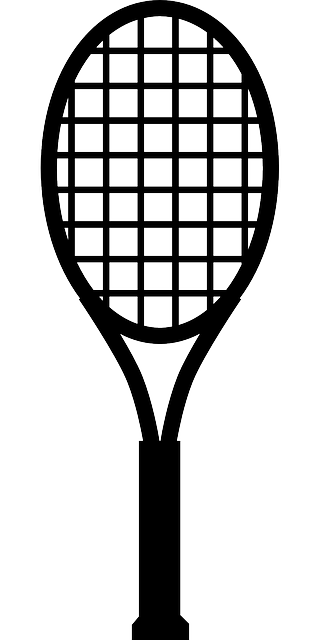التقويم البيزنطي
| الثقافة البيزنطية |
|
التقويم البيزنطي، وأيضاً "Creation Era of Constantinople," or "Era of the World" (باليونانية: Έτη Γενέσεως Κόσμου κατά 'Ρωμαίους , also Έτος Κτίσεως Κόσμου or Έτος Κόσμου ) was the Calendar officially used by the Eastern Orthodox Church from ca. AD 691 to 1728 in the Ecumenical Patriarchate, by the الامبراطورية البيزنطية from AD 988 to 1453, and in Russia from ca. AD 988 to 1700. Derived from the Septuagint version of the Bible, it placed the date of creation at 5,509 years before the Incarnation, and was characterized by a certain tendency which had already been a tradition amongst Hebrews and Jews to number the years from the foundation of the world. (باللاتينية: Annus Mundi /‘Ab Origine Mundi’ (AM)). Its year one, the supposed date of creation, was September 1, 5509 BC to August 31, 5508 BC.
Alexandrian Era
The "Alexandrian Era" (باليونانية: Κοσμου ετη κατ’ Αλεξανδρεις ) developed in AD 412, was the precursor to the Byzantine Era. After the initial attempts by Hippolytus, Clement of Alexandria and others, the Alexandrian computation of the date of creation was worked out to be 25 March 5493 BC..
The Alexandrine monk Panodoros reckoned 5904 years from Adam to the year AD 412. His years began with August 29, corresponding to the First of Thoth, or the Egyptian new year. Bishop Annianos of Alexandria however, preferred the Annunciation style as New Year's Day, the 25th of March, and shifted the Panodoros era by about six months, to begin on 25 March. This created the Alexandrian Era, whose first day was the first day of the proleptic Alexandrian civil year in progress, 29 August, 5493 BC, with the ecclesiatical year beginning on 25 March, 5493 BC.
- This system presents in a masterly sort of way the mystical coincidence of the three main dates of the world's history: the beginning of Creation, the Incarnation, and the Resurrection of Christ. All these events happened, according to the Alexandrian chronology, on the 25th of March; furthermore, the first two events were separated by the period of exactly 5500 years; the first and the third one occurred on Sunday — the sacred day of the beginning of the Creation and its renovation through Christ
Dionysius of Alexandria had earlier emphatically quoted mystical justifications for the choice of March 25 as the start of the year:
- March 25 was considered to be the anniversary of Creation itself. It was the first day of the year in the medieval Julian calendar and the nominal vernal equinox (it had been the actual equinox at the time when the Julian calendar was originally designed). Considering that Christ was conceived at that date turned March 25 into the Feast of the Annunciation which had to be followed, nine months later, by the celebration of the birth of Christ, Christmas, on December 25.
The Alexandrian Era of March 25 5493 BC was adopted by church fathers such as Maximus the Confessor and Theophanes the Confessor, as well as chroniclers such as George Syncellus. Its striking mysticism made it popular in Byzantium especially in monastic circles. However this masterpiece of Christian symbolism had two serious weak points: historical inaccuracy surrounding the date of Resurrection as determined by its Easter computus, and its contradiction to the chronology of the Gospel of St John regarding the date of the Crucifixion on Friday after the Passover.
Comparative list of dates of creation
Early Church writers
- 5537 BC - Julius Africanus (AD 200-245), Church historian.
- 5529 BC - Theophilus (AD 115-181), Bishop of Antioch.
- 5509 BC - Byzantine Creation Era or "Creation Era of Constantinople." (finalized in 7th c. AD).
- 5507 BC - Chronicon Paschale (ca. AD 630), Byzantine universal chronicle of the world.
- 5500 BC - Hippolytus of Rome. (ca. AD 234), Presbyter, writer, martyr.
- 5493 BC - Alexandrian Era (AD 412).
- 5199 BC - Eusebius of Caesarea, Bishop of Caesarea and Church historian (AD 324).
تواريخ هامة في التقويم البيزنطي
- 1 بيزنطي—خلق العالم.
- 4755 بيزنطي (753 قبل الميلاد) -- تأسيس روما.
- 4841 بيزنطي (667 قبل الميلاد) -- تأسيس مدينة بيزنطة.
- 5478 بيزنطي (30 قبل الميلاد) -- تأسيس الامبراطورية الرومانية في معركة أكتيوم البحرية بقيادة أوكتافيان وأوغسطس.
- تقريباً 5502 بيزنطي (6 قبل الميلاد) -- ولادة يسوع.
- تقريباً 5541 بيزنطي (33 م) -- صعود يسوع.
- 5838 بيزنطي (330 م) -- أصبحت القسطنطينية العاصمة الجديدة للامبراطورية الرومانية.
- 5888 بيزنطي (380 م) -- أصبحت المسيحية الدين الرسمي للإمبراطورية الرومانية بمرسوم من ثيودوسيوس الأول.
- 5903 بيزنطي (395 م) -- وفاة ثيودوسيوس الأول قسمت الإمبراطورية الرومانية إلى شرقية وغربية.
- 6045 بيزنطي (537 م) -- يأمر جستنيان الأول باستعمال دورات 15 سنة
- 6118 بيزنطي (610 م) -- تغيير اللغة الرسمية للإمبراطورية الرومانية الشرقية من اليونانية إلى اللاتينية.
- 6496 بيزنطي (988 م) -- يأمر باسيل الثاني أول استعمال رسمي للتقويم البيزنطي.
- 6562 بيزنطي (1054 م) -- الانقسام الكبير بين الكنيسة الأرثوذكسية الشرقية والكنيسة الكاثوليكية الرومانية.
- 6712 بيزنطي (1204 م) -- الحملة الصليبية الرابعة تهاجم عاصمة الإمبراطورية البيزنطية القسطنطينية. إنشاء إمبراطورية القسطنطينية اللاتينية.
- 6769 بيزنطي (1261 م) -- إعادة إنشاء الإمبراطورية البيزنطية.
- 6961 بيزنطي (1453 م) -- سقوط القسطنطينية -- الانهيار النهائي للإمبراطورية البيزنطية.
- 7427 - 7430 بيزنطي (1919 - 1922 م) السياسي اليوناني Eleftherios Venizelos يحاول استرجاع القسطنطينية من هجريا في الحرب الهجرية اليونانية (1919-1922) ، ولكن في أثناء الحرب يخسر انتخاب 1920 ويمضى للمنفى مع فوز هجريا على اليونان.
ملاحظة
حدثة بيزنطي اخترعها مؤرخ ألماني هيرونيموس ولف سنة 1557 ونشرها الفرنسيون في القرن 18 للإشارة للإمبراطورية الرومانية الشرقية. رعايا الامبراطورية كانوا يستخدمون حدثة روماني وكان امبراطورهم يدعى الامبراطور الروماني.
انظر أيضاً
- Anno Mundi.
- Book of Genesis.
- Calendar era.
- Chronology of the Bible.
- Dating Creation.
- Ex nihilo.
- Hexameron.
- Julian calendar.
- Lunisolar calendar.
- السبعونية.
- Young Earth creationism.
Principal considerations for the Byzantine calendar
- Creation according to Genesis.
- Solar cycle (calendar) (28-year solar cycle).
- Metonic cycle (19 year lunar cycle).
- Indiction (15 year indiction cycle).
- Easter Computus.
Other Judeo-Christian eras
- Coptic calendar (Note that the "Alexandrian Era" (March 25, 5493 BC), is totally distinct from the Coptic "Alexandrian Calendar", which is derived from the ancient Egyptian calendar and based on another era, the Era of the Martyrs (August 29, 284)).
- Enoch calendar.
- Ethiopian calendar (Derived from the Coptic "Alexandrian Calendar", and based on the Incarnation Era (August 29, AD 8)).
- تقويم عبري.
- Ussher chronology.
الهوامش
- ^ i.e. Eastern Roman Empire. The term Byzantine was invented by the German historian Hieronymus Wolf in 1557 but was popularized by French scholars during the 18th century to refer to the Eastern Roman Empire. The citizens of the empire considered themselves Romaioi ("Romans"), their emperor was the "Roman Emperor", and their empire the Basileia ton Romaion ("Empire of the Romans"). The Latin West designated the empire as "Romania", and the Muslims as "Rum".
- ^ Significantly, this same phrase - "from the foundation of the world", or "since the dawn of time", (باليونانية: από καταβολής κόσμου, Apo Kataboles Kosmou) - occurs repeatedly in the New Testament, in Matthew 25:34, Luke 11:50, Hebrews 4:3, 9:26, and Revelation 13:8, 17:8, perhaps reflecting on the Byzantine desire in this case to fix such an era or convenient starting point for historical computation, in a calendar based on the Scriptures.
- ^ The Era of Antioch (5492 BC) and Era of Alexandria (5502 BC) were originally two different formations, differing byعشرة years. They were both much in use by the early Christian writers attached to the Churches of Alexandria and Antioch. However after the year AD 284 the two eras coincided, settling on 5492 BC. There are, consequently, two distinct eras of Alexandria, the one being used before and the other after the accession of Diocletian. ("Epoch: Era of Antioch and Era of Alexandra." In: The Popular Encyclopedia: being a general dictionary of arts, sciences, literature, biography, history, and political economy. (Vol. 3, Part 1). Glasgow: Blackie and Son, 1841. p.73.)
- ^ A calendar obtained by extension earlier in time than its invention or implementation is called the "proleptic" version of the calendar.
- ^ In the commonly used 19‐year Easter moon cycle, there was no year when the Passover (the first spring full moon, Nisan 14) would coincide with Friday and the traditional date of the Passion, March 25; according to Alexandrian system the date would have to have been Anno Mundi 5533 = 42(!)AD.
المصادر
- ^ Pavel Kuzenkov. "How Old is The World? The Byzantine Era and its Rivals". Institute for World History, Moscow, Russia. In: Elizabeth Jeffreys, Fiona K. Haarer, Judith Gilliland. Proceedings of the 21st International Congress of Byzantine Studies: London, 21-26 August, 2006: Vol. 3, Abstracts of Communications. Ashgate Publishing, Ltd., 2006. pp. 23-24.
- ^ Elias J. Bickerman. Chronology of the Ancient World. 2nd edition. Cornell University Press. 1980. p.73.
- ^ Rev. Philip Schaff (1819-1893), Ed. "Era." Schaff-Herzog Encyclopedia of Religious Knowledge. New Edition, 13 Vols., 1908-14. Vol. 4, pp.163.
- ^ خطأ استشهاد: وسم
<ref>غير سليم؛ لا نص تم توفيره للمراجع المسماةKUZENKOV-2 - ^ خطأ استشهاد: وسم
<ref>غير سليم؛ لا نص تم توفيره للمراجع المسماةGENESIS 2000. p.236 - ^ Barry Setterfield. Ancient Chronology in Scripture. September 1999.
وصلات خارجية
- Byzantine ways of reckoning time
- Era of Constantinople at Classic Encyclopedia (Based on the 11th edition of the Encyclopædia Britannica, 1911).
- Russian Calendar (988-1917). Charles Ellis, University of Bristol. The Literary Encyclopedia. 25 September 2008.
- Calendar Era: Late Antiquity and Middle Ages: Christian era at SMSO Encyclopedia (Saudi Medical Site Online).
- Howlett, J. Biblical Chronology. In, The Catholic Encyclopedia (New Advent). New York: Robert Appleton Company, 1908.
- Chronology of the Biblical Patriarchs.
- Dr. Stephen C. Meyers. Biblical Archaeology: The Date of the Exodus According to Ancient Writers. Institute for Biblical & Scientific Studies (IBSS). Updated April 30, 2008.
- Young earth creationism at CreationWiki.
- Theory of evolution at CreationWiki.
- Church Calendar at Orthodoxwiki.
التقويم العبري
- The Era of the Creation at Jewish Encyclopedia.
- Hebrew Calendar at Fact-Archive.com
- The Jewish Calendar by Karl Hagen (medievalist).
المراجع وقراءات إضافية
مراجع أولية
- Doukas. Decline and Fall of Byzantium To The Ottoman Turks. An Annotated Translation by Harry J. Magoulias. Wayne State University Press, 1975.
- George Synkellos. The Chronography of George Synkellos: a Byzantine Chronicle of Universal History from the Creation. Transl. Prof. Dr. William Adler & Paul Tuffin. Oxford: Oxford University Press, 2002.
- Ibn Ezra, Abraham ben Meïr, (1092–1167). Ibn Ezra's Commentary on the Pentateuch: Genesis (Bereshit). (Vol.1 - Genesis). Transl. and annotated by H. Norman Strickman & Arthur M. Silver. Menorah Pub. Co., New York, N.Y., 1988.
- Julius Africanus. Extant Writings III. The Extant Fragments of the Five Books of the Chronography of Julius Africanus.
- Niketas Choniates. O City of Byzantium, Annals of Niketas Choniates. Transl. by Harry J. Magoulias. Wayne State University Press, Detroit, 1984.
- Pliny the Elder. Historia Naturalis, XVIII, 210.
- St. Basil the Great. Hexæmeron. Nicene and Post-Nicene Fathers of the Christian Church, 2nd Series (NPNF2). Transl. Philip Schaff, D.D., LL.D. (1819–1893): Volume VIII - Basil: Letters and Select Works. Wm. B. Eerdmans Publishing Co., Grand Rapids, Michigan.
- St. Hilary of Poitiers. On the Trinity. Book IV.
- The Rudder (Pedalion): Of the metaphorical ship of the One Holy Catholic and Apostolic Church of the Orthodox Christians, or all the sacred and divine canons of the holy and renowned Apostles, of the holy Councils, ecumenical as well as regional, and of individual fathers, as embodied in the original Greek text, for the sake of authenticity, and explained in the vernacular by way of rendering them more intelligible to the less educated.
- Comp. Agapius a Hieromonk and Nicodemus a Monk. First printed and published A.D.1800. Trans. D. Cummings, [from the 5th edition published by John Nicolaides (Kesisoglou the Caesarian) in Athens, Greece in 1908], Chicago: The Orthodox Christian Educational Society, 1957. Repr., New York, N.Y.: Luna Printing Co., 1983.
- Theophanes. The Chronicle of Theophanes Confessor: Byzantine and Near Eastern History, AD 284-813. Cyril Mango, Roger Scott, Geoffrey Greatrex (Eds.). Oxford University Press, 1997.
- Theophilus of Antioch. Theophilus of Antioch to Autolycus. Book III. Chap XXIV (Chronology from Adam) - Chap. XXVIII (Leading Chronological Epochs).
مراجع ثانوية
القرن 21
- Anthony Bryer. "Chronology and Dating". In: Elizabeth Jeffreys, John Haldon, Robin Cormack . The Oxford Handbook of Byzantine Studies. Oxford University Press, 2008. pp. 31–37.
- Dr. Iaakov Karcz. "Implications of some early Jewish sources for estimates of earthquake hazard in the Holy Land". Annals of Geophysics, Vol. 47, N. 2/3, April/June 2004.
- Fr. Patrick Henry Reardon. Creation and the Patriarchal Histories: Orthodox Christian Reflections on the Book of Genesis. Conciliar Press, 2008.
- Fr. Seraphim Rose. GENESIS, CREATION and EARLY MAN: The Orthodox Christian Vision. St. Herman of Alaska Brotherhood, Platina, California, 2000.
- Frederick Deland Leete. Christian Brotherhoods. Kessinger Publishing, 2003.
- Paul James-Griffiths. Creation days and Orthodox Jewish Tradition. AnswersinGenesis.org. March 2004.
- Paul Stephenson. "Translations from Byzantine Sources: The Imperial Centuries, c.700-1204: John Skylitzes, "Synopsis Historion"". November 2006.
- Pavel Kuzenkov. How old is the World? The Byzantine era κατα Ρωμαίους and its rivals. 21st International Congress of Byzantine Studies, London 2006.
- Prof. Charles Ellis (University of Bristol). "Russian Calendar (988-1917)". The Literary Encyclopedia. 25 September 2008.
- Prof. Dr. Marcus Louis Rautman. "Time." In . Greenwood Publishing Group, 2006. pp. 3–8.
- Prof. Dr. Muhammad Shamsaddin Megalommatis. "Gueze – ‘Ethiopian’: the Counterfeit Millennium". September 8, 2007.
- Prof. Dr. Roger T. Beckwith (D.D., D.Litt.). Calendar, Chronology, and Worship: Studies in Ancient Judaism and Early Christianity. Brill Academic Publishers, 2005. (Dr Beckwith served for twenty years on the Anglican-Orthodox Commission).
- The Orthodox Study Bible. St. Athanasius Academy of Orthodox Theology. Elk Grove, California, 2008.
القرن 20
- Barry Setterfield. Ancient Chronology in Scripture. September 1999.
- Chronology at Classic Encyclopedia (based on the 11th ed. of the Encyclopædia Britannica, pub.1911).
- Dr. Ben Zion Wacholder. "Biblical Chronology in the Hellenistic World Chronicles". in The Harvard Theological Review, Vol.61, No.3 (Jul., 1968), pp. 451–481.
- Dr. Ben Zion Wacholder. Essays on Jewish Chronology and Chronography. Ktav Pub. House, 1976.
- Dr. Floyd Nolan Jones. Chronology of the Old Testament. Master Books, Arizona, 1993. Repr. 2005. (supports Ussher's chronology, i.e. 4004 BC).
- E.G. Richards. Mapping Time: The Calendar and its History. Oxford University Press, 1998.
- Elias J. Bickerman. Chronology of the Ancient World. 2nd edition. Cornell University Press. 1980.
- Fr. Stanley S. Harakas. The Orthodox Church: 455 Questions and Answers. Light & Life Publishing, Minneapolis, 1988.
- George Ogg. "Hippolytus and the Introduction of the Christian Era". in Vigiliae Christianae, Vol.16, No.1 (Mar., 1962), pp. 2–18.
- Howlett, J. "Biblical Chronology". In The Catholic Encyclopedia (New Advent). New York: Robert Appleton Company, 1908.
- Jack Finegan. Handbook of Biblical Chronology: Principles of Time Reckoning in the Ancient World and Problems of Chronology in the Bible. Hendrickson Publishers, 1998.
- K.A. Worp. Chronological Observations on Later Byzantine Documents. 1985. University of Amsterdam.
- Prof. Dr. William Adler. Time Immemorial: Archaic History and its Sources in Christian Chronography from Julius Africanus to George Syncellus. Washington, D.C. : Dumbarton Oaks Research Library and Collection, 1989.
- Rev. Philip Schaff (1819–1893), Ed. "Era." Schaff-Herzog Encyclopedia of Religious Knowledge New Edition, 13 Vols., 1908-14. Vol. 4, pp.163.
- Roger S. Bagnall, K. A. Worp. The Chronological Systems of Byzantine Egypt. Zutphen, 1978.
- V. Grumel. La Chronologie. Presses Universitaires France, Paris. 1958.
- Van der Essen, L. "Chronicon Paschale". In The Catholic Encyclopedia (New Advent). New York: Robert Appleton Company, 1908.
- Yiannis E. Meimaris. Chronological Systems in Roman-Byzantine Palestine and Arabia. Athens, 1992.
19th century and earlier
- John McClintock, James Strong. Cyclopedia of Biblical, theological, and ecclesiastical literature: Supplement. V.2. Harper, 1887.
- Prof. Fr. Arsenius John Baptist Vuibert (S.S.). An Ancient History: From the Creation to the Fall of the Western Empire in A.D. 476. Baltimore: Foley, 1886.
- Samuel Poznański. "Ben Meir and the Origin of the Jewish Calendar". in The Jewish Quarterly Review, Vol. 10, No. 1 (Oct., 1897), pp. 152–161.
- Sir Thomas Browne. Pseudodoxia Epidemica: Book VI. Ch. 1 - Of sundry common opinions Cosmographical and Historical. 1646; 6th ed., 1672. pp. 321–330.
- The Popular Encyclopedia: being a general dictionary of arts, sciences, literature, biography, history, and political economy. (Vol. 3, Part 1). Glasgow: Blackie and Son, 1841.
- Thomas Spencer Baynes. "Chronology: Era of the Creation of the World.” The Encyclopædia Britannica: a dictionary of arts, sciences, and general literature. 9th Ed., Vol. 5. A. & C. Black, 1833. pp. 709–754.
- نطقب:Orthodoxwiki
















